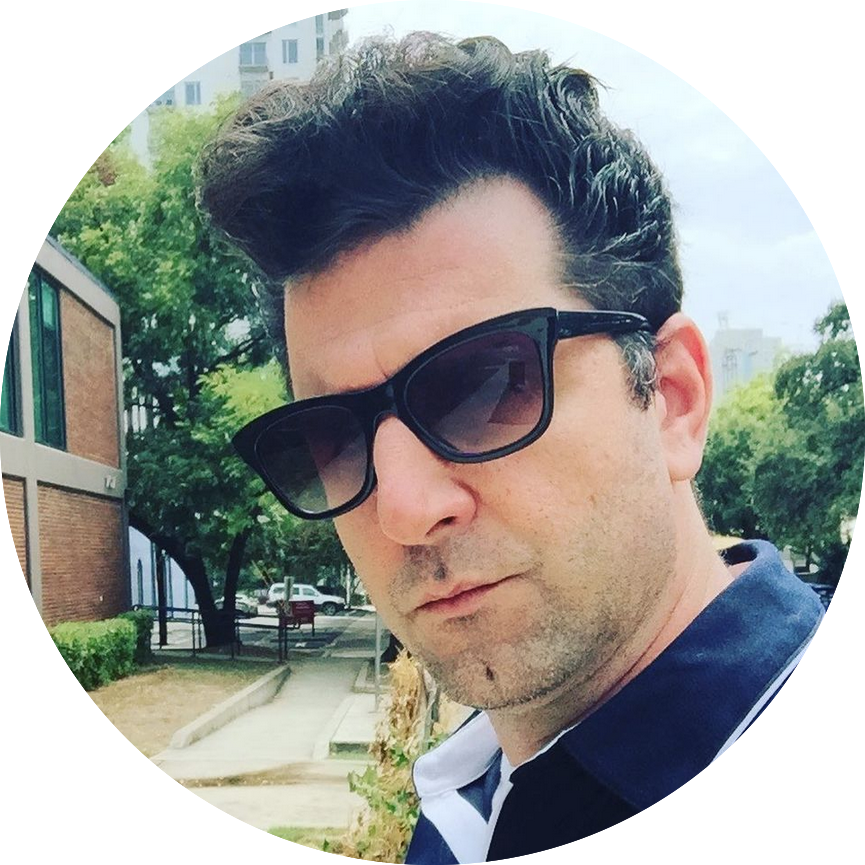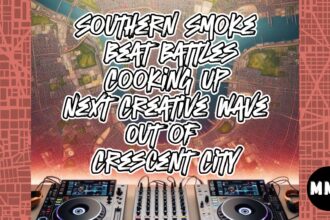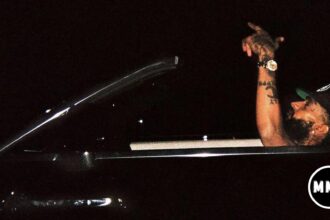It’s difficult to explain the seismic impact of Nevermind’s release thirty years ago this fall. The album (which hit number one on the Billboard Top 200), its singles (which became a staple of the one-time cultural hub MTV), and the band that created it were as disruptive to the music industry they infiltrated and the underground scene that birthed them.
To commemorate the aftershocks, a few members of the MMH family (Carl Henderson II, Nico Carter, Nate Mondschein, Simon Pruitt, and Jim Trainer) gathered together to reflect on the seminal grunge text from Cobain, Grohl, and Krist, the impact it had on their own lives, and where they stand on Nirvana and their most acclaimed album today.

First of all, I have to thank the person who introduced me to Nirvana: Baz Luhrmann. Were it not for what numerous scholars have referred to as my “Moulin Rouge Years,” I probably wouldn’t have spent 2001-2002 experiencing the faint echo of what a teenager must have felt listening to the actual record in 1991. The track I’m referring to, as you well know, is a jukebox-musical remix of the Can-Can and “Smells Like Teen Spirit.”
It must be noted that the Moulin Rouge remix involves a section in which Charles Zidler, the French guy who founded the Moulin Rouge in real life, performs what can only be described as a rap feature. Lyrics such as, “Outside things may be tragic, but in here we feel they’re magic,” play counter-point to Cobain’s eternal guitar riffs as men in top-hats line-dance in gleeful anticipation of getting laid.
It’s hard to say what Kurt Cobain would have thought about that. Or why Charles Zidler never made Freshman Class. But one thing I do know is that lines like, “I feel stupid and contagious,” and, “I forget just why I taste,” hit differently in the age of COVID. “Smells Like Teen Spirit” also provided some strong bi-racial representation with lines like, “a mulatto.” I don’t know what Kurt was talking about, and the rest of the lyrics don’t help me with that, but it doesn’t matter. The song rocks ass. And whenever I go anywhere, ever, trust that I’m singing this refrain silently in my head: “Here we are now, entertain us!” (The Baz Luhrmann version).

It was 2004, and I was late to the party. I was scrawny with acne and a bad haircut and jeans that didn’t fit. I was friends with the friends of the cool kids. I was never the one to find the hip thing first. Nirvana was no exception.
The first time I remember hearing a song from Nevermind was at a band practice in my friend Jake’s basement, where our band Jake’s Basement practiced. In the interest of disguising my decided lack of cool, I had developed a meticulous ritual of very casually suggesting we re-listen to each new cover song suggestion before playing, “just to remind ourselves of our parts.” I’d furrow my brow just so, cock my head towards the speaker, and frantically download enough information about a song I had never heard to pretend like I had been listening to it for years.
When the first few bars of “In Bloom” hit, I knew I was screwed.
It wasn’t so much the complexity of Dave Ghrol’s part, as it was the abandon with which he played it, something 14-year-old Nate decidedly did not understand how to access in any sort of productive way. I hunched over the drums, marveling at (and terrified of) a kind of vulnerable anger I had never heard before–it had always either been pure bombast, or something more palatable.
“In Bloom” remains among the top of my Nirvana favorites. Like many Cobain tracks, the lyrics are irony-drenched, and feel more insightful about the nature of toxic masculinity than most of their contemporaries—the way it consumes its wielder as they consume everything around them. It’s a song that indicts its own listeners, and by that token, is an interrogation of the band’s choice to make it in the first place.
That’s probably what I still love the most about Nirvana, and what I miss the most about the music we never got from Kurt. I would’ve loved to see where that interrogation could have taken him.

I’ll take a contrarian perspective from the others on this list: I grew up not liking Nirvana. From the sulky grunge sound, to the band’s questionable personal life, to the never-ending stream of merchandise, often worn by people who never even heard a song—I just never understood it.
After all this time, I can confidently say that Nirvana is exactly what they’re hyped up to be, and more. Maybe it’s some sort of musical maturation on my part. Maybe it’s just onset teenage angst. Either way, Nirvana rocks. They were just provocative enough to connect to a younger generation that was itching for edgier content. At the same time, they remained musically sound enough to appeal to the older crowd.
Nevermind is the mecca of such middle-ground. Highlighted by the arguably the best song of the decade with “Come As You Are” and the best piece of mindless lyricism since “Bohemian Rhapsody” with “Smells Like Teen Spirit,” you couldn’t compare it to anything else back then, and you still can’t in 2021.

Nirvana’s music wasn’t anything different than the countless post-hardcore (and what came to be known as post-rock) bands we were listening to in the underground: whose pop-up and DIY shows were private affairs—ours and ours alone; who packed a wallop that made classic rock dusty and fey, with a dark wit that curdled the club-music set’s psychotic insistence on being happy. But the note that Cobain hit, and what he came to represent, was the need to be seen and accepted; and if not—oh well, whatever.
Sadly, for Cobain and his generation, that attitude wouldn’t weather the ascent of the “biggest band in the world.” We were punk rock kids and outcasts, but after Nevermind, we weren’t on the outside anymore. Girls would talk to us and jocks would be at Beastie Boys shows. Form overtook spirit as grunge became a caricature of everything we stood for. We’d never be able to tell who was down again. Everybody has tattoos now. Squares and cops are indistinguishable from the veterans of our Fight Club of the early 90s underground.
Punk rock was never a fad, or about anything happening on MTV–it was a way to be. 30 years after the release of Nevermind, I’ve no desire to put it on tonight. We live in a post-authentic world. I suppose from our own splintered and curated isolations, some hot cultural nova could come along and change everything. In the meantime, I’ll be listening to Fugazi.

In an instant, nothing was the same.
My dad would pick me up from school in his clean-ass 1987 Buick Regal. His favorite album was Legend by Bob Marley. That was our soundtrack on the way home. Thanks to him I could repeat the lyrics blindfolded, eating sunflowers, while smoking a cigarette. On the drive, my dad stopped at a convenience store for a pack of Marlboro 100s. I sat in the car and fiddled with the radio dial–nothing interested me. I lowered my hand to grab my Capri Sun. As I was lifting it back to my face, I felt a tremor pass through my body after hearing:
Hello, hello, hello, how low
Hello, hello, hello, how low
Hello, hello, hello, how low
Hello, hello, hello
With the lights out, it’s less dangerous
Here we are now, entertain us
I feel stupid and contagious
Here we are now, entertain us
I ogled at the radio like a dog hearing unfamiliar noises for the first time, tilting my head from side to side. I knew whatever this was, it was special. It was charged. It was disturbed. I felt the emotion in the lead singer’s voice. The strings on the guitar yelled for freedom. As the song ended, I yearned for the DJ to disclose the name of the band. He simply uttered, “and that was Nirvana with ‘Smells Like Teen Spirit.’”
Nirvana? “Smells Like Teen Spirit?” I marveled at what teen spirit could smell like. What is nirvana? I was six in 1991. This all felt like system superfluity. I begged my dad to bring me to Odyssey Records. I informed him I needed him to ”buy Nirvana.” He was tolerant enough to take me to the store. I think his curiosity got the better of him. Nonetheless, one glance at the now legendary album cover, and he declined to buy it for me.
Luckily, MTV would frequently play Nirvana’s videos, and I was able to hear most of the album that way. A little later in life, I had the chance to introduce my dad to the album. He told me, and I quote, “this shit jams.”
Never judge an album by its cover. Rest in power Kurt Cobain. Rest in Power Pops. Nirvana forever.









